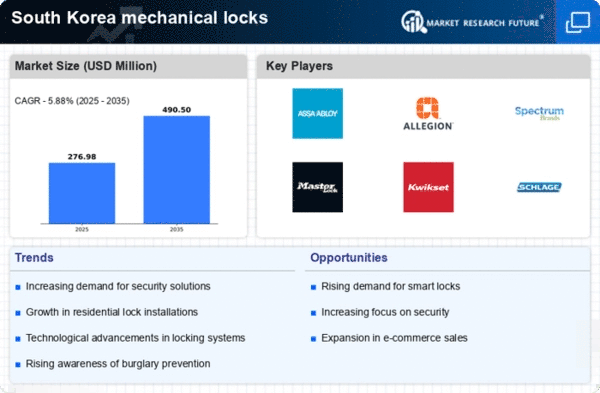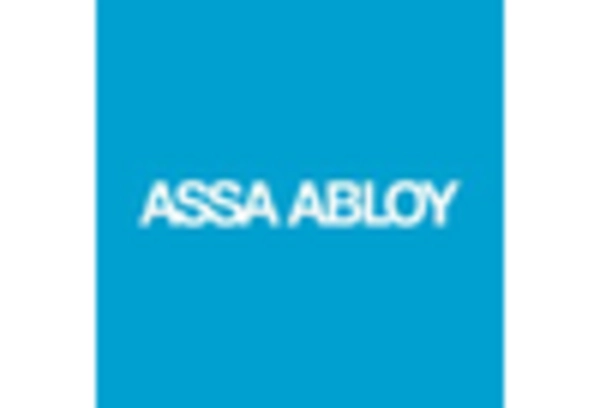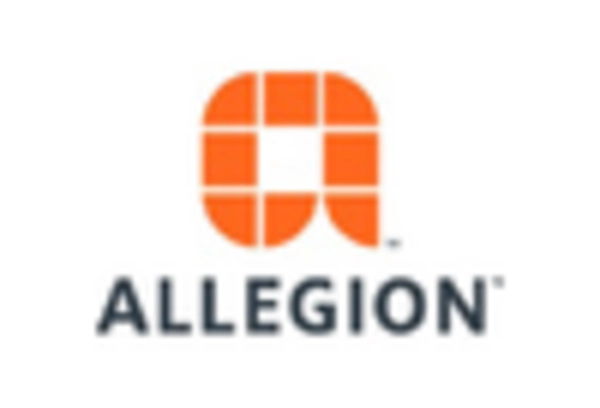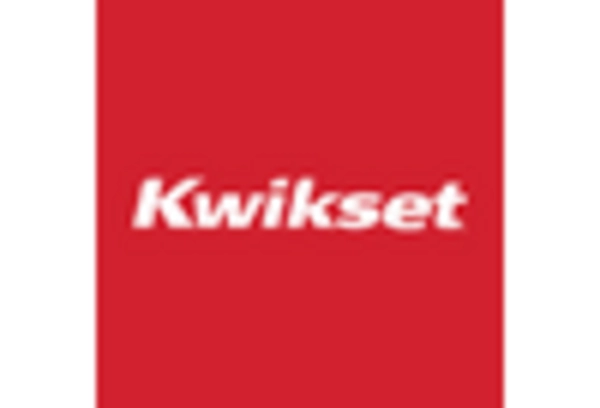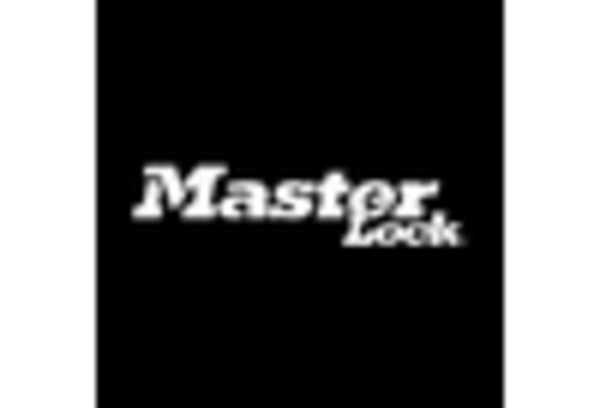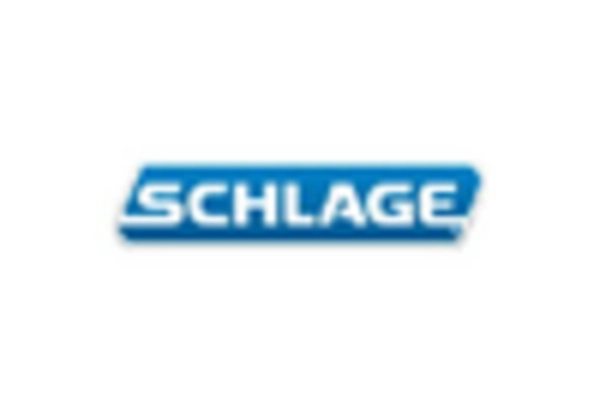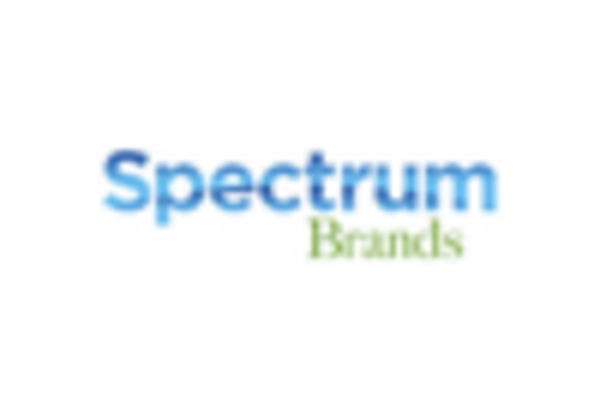Growing Real Estate Sector
The expansion of the real estate sector in South Korea is significantly impacting the mechanical locks market. As new residential and commercial properties are developed, the demand for reliable locking systems is increasing. In 2025, the real estate market is projected to grow by 5%, which will likely drive the mechanical locks market as builders and developers seek to equip their properties with high-quality locks. This growth is particularly pronounced in metropolitan areas where urbanization is accelerating. The mechanical locks market is responding to this demand by offering a diverse range of products tailored to various property types, ensuring that security needs are met across different segments.
Increased Security Concerns
The rising incidence of theft and burglary in South Korea has heightened the demand for robust security solutions, thereby driving the mechanical locks market. Consumers are increasingly prioritizing security features in their homes and businesses, leading to a surge in the adoption of advanced mechanical locking systems. In 2025, the market is projected to grow by approximately 8% as individuals seek to enhance their safety measures. This trend is particularly evident in urban areas where crime rates are higher, prompting property owners to invest in reliable locking mechanisms. The mechanical locks market is thus experiencing a shift towards products that offer superior security features, such as pick-resistant designs and durable materials, to meet the evolving needs of consumers.
Regulatory Compliance and Standards
In South Korea, stringent regulations regarding building safety and security are influencing the mechanical locks market. The government has implemented various standards that mandate the use of certified locking systems in residential and commercial properties. Compliance with these regulations is essential for construction companies and property developers, which in turn drives demand for high-quality mechanical locks. As of 2025, it is estimated that the market will see a growth rate of around 6% due to these regulatory requirements. The mechanical locks market is adapting to these changes by innovating products that not only meet but exceed safety standards, ensuring that they remain competitive in a regulated environment.
Consumer Preference for Traditional Locks
Despite the rise of smart locking systems, there remains a strong consumer preference for traditional mechanical locks in South Korea. Many individuals value the simplicity and reliability of mechanical locks, particularly in residential settings. This trend is expected to sustain the mechanical locks market, with a projected growth rate of 4% in 2025. The mechanical locks market is capitalizing on this preference by emphasizing the durability and ease of use of traditional locks, appealing to consumers who prioritize practicality over technology. This enduring demand for mechanical solutions suggests a balanced market where both traditional and modern locking systems coexist.
Technological Advancements in Manufacturing
The mechanical locks market is benefiting from advancements in manufacturing technologies, which enhance the quality and efficiency of lock production. Innovations such as precision machining and automated assembly lines are enabling manufacturers to produce more reliable and durable locking systems. In South Korea, the integration of these technologies is expected to contribute to a market growth of approximately 7% in 2025. This trend is fostering competition among manufacturers, as they strive to offer superior products that meet consumer expectations for performance and longevity. The mechanical locks market is thus evolving, with a focus on producing locks that not only provide security but also incorporate features that enhance user experience.


